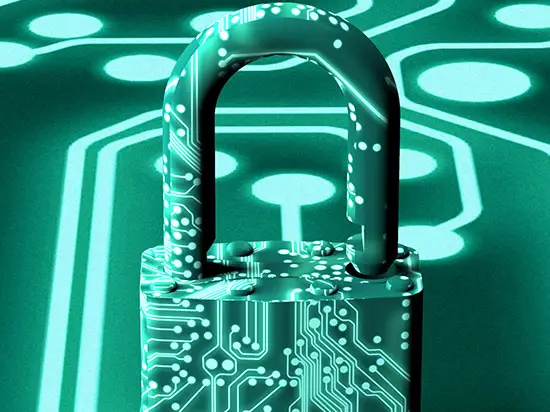Data Security - Keeping Your Information Safe

Most Americans are ‘connected’ through one technology or another. We wake up to alarms set on our cell phones, and we check our emails and social media notifications before we go to sleep. Browsing the internet is a comfort blanket on long train rides and awkward elevator waits. Shopping online is becoming our favorite way to avoid the holiday hustle and bustle. Scheduling our bill payments through convenient apps so that we’re never late has replaced mailing paper checks. Our connection to the internet is beginning to define our culture, but it comes with a false sense of security that we ignore at our own peril.
How can you help keep your data safe?
Your cell phone is your weak point
Many cell phones lack the anti-virus software that our computers are equipped with. This means that visiting sketchy websites and downloading files from sources you don’t fully trust are easy ways to accidently acquire malware on your device. Malware is specifically designed to discretely steal information from you. The bottom line? If your computer is better protected, use it to access sites you’re unsure about, not your phone.
Don’t shop on public Wi-Fi
If your phones is set to connect to the nearest and strongest Wi-Fi signal available, turn that off! Not only does searching for a connection drain your battery; it also leaves the information on your device vulnerable to attack. This applies to any device that you’re using to connect to public Wi-Fi: laptop, tablet, cellphone, etc. Sending information when you’re connected to public Wi-Fi makes it very easy for your information to be stolen.
Also, if you’re making an online purchase, don’t save your checkout information on your phone or PC. It’s meant to save you time, but if a hacker gains access to your online shopping accounts and your information has been saved, it will be served to the thief on a silver platter.
Change your passwords often
Most of us are guilty of this. Our passwords for several different sites are typically the same, or similar, and they go unchanged until you forget your password (Why would you? They’re all the same!) or you actively change it. Experts say that the safest password is more of a pass-phrase; string together three or four words. These words can make a sentence, or they can be random. It’s your choice! If you’re worried about remembering your passwords, you can write them down and keep them in a safe place, perhaps your favorite book or in a file with other important documents. Remember, the real threat is online.
We are still at risk
Your data is at risk more often than you think. This should be especially concerning for those of us who frequently shop or pay bills online. Even if we’re using specific apps designed by trusted companies and websites, we’re still at risk. One more time: We are still at risk. Even though these companies are spending a great deal of time and money developing new ways to keep your data safe, there are thousands of hackers working just as hard to defeat the latest software protection.
